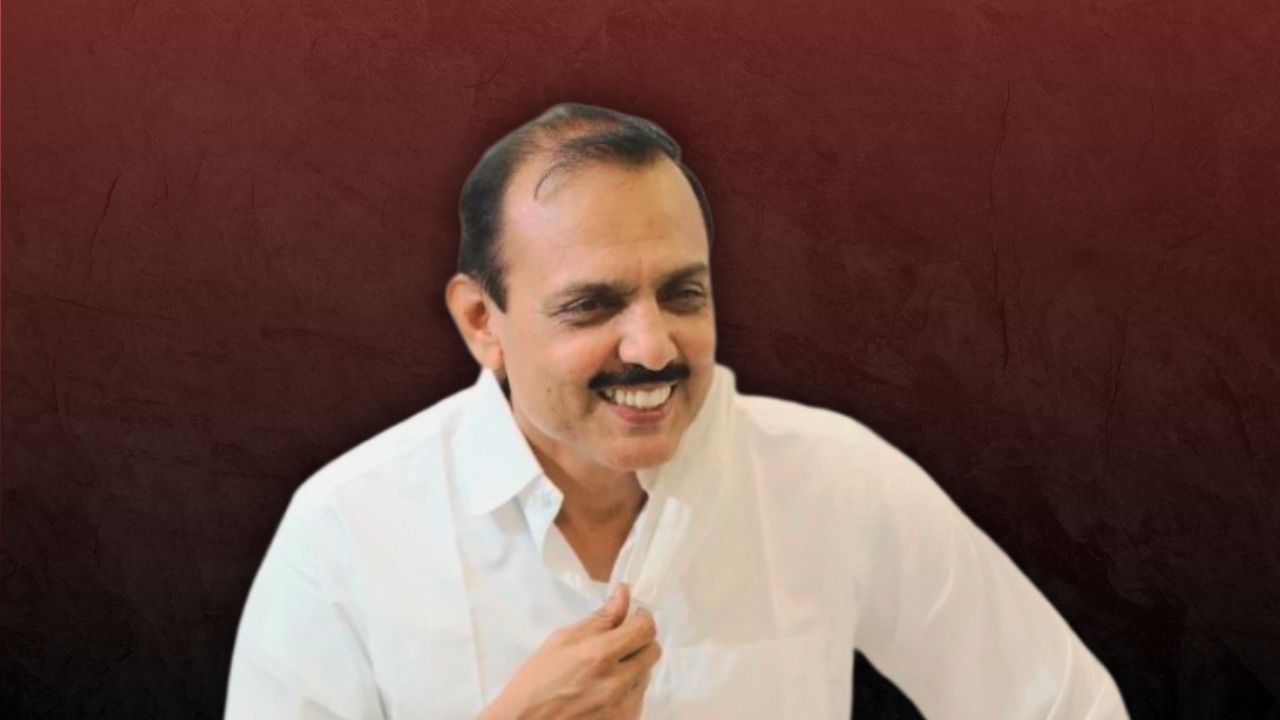The awards, the State’s highest civilian recognition for artists, are given annually by the Iyal Isai Nataka Mandram, a unit of the Directorate of Art and Culture, to honour contributions in literature, music, theatre, and folk arts.
Published Sep 25, 2025 | 4:27 PM ⚊ Updated Sep 25, 2025 | 4:27 PM

KKC Balu, State Treasurer of the Kongunadu Makkal Desiya Katchi
Synopsis: The Tamil Nadu government has faced criticism after including KKC Balu, Treasurer of the KMDK, among the list of recipients of the 2021–2023 Kalaimamani Awards under a newly created Valli Oil Kummi category. Critics have highlighted Balu’s controversial statements regarding women in 2023 and argue that the art form itself promotes caste supremacy, and therefore does not deserve recognition.
The list of recipients of the Kalaimamani Awards for 2021, 2022, and 2023, announced by the Tamil Nadu government on Wednesday, 24 September 2025, has sparked backlash following the inclusion of KKC Balu, State Treasurer of the Kongunadu Makkal Desiya Katchi (KMDK), an ally of the ruling DMK.
The awards, the State’s highest civilian recognition for artists, are given annually by the Iyal Isai Nataka Mandram, a unit of the Directorate of Art and Culture, to honour contributions in literature, music, theatre, and folk arts.
The 2022 list features Balu among the recipients under a newly created subcategory in folk arts—Valli Oil Kummi.
The decision has drawn opposition from within the DMK alliance as well as civil society organisations, given his controversial statements during a 2023 mass Valli Kummi performance involving thousands of women, where he administered an oath in which participants pledged to “marry only men from the Gounder community.”
Valli Kummi performances themselves amount to a tool for caste supremacy and do not merit state recognition, according to Aadavan Dheetchanya, State General Secretary of the Tamil Nadu Progressive Writers’ and Artists’ Association.
“In Valli Kummi performances, the accompanying musicians are mostly from other communities, especially Dalits. When the lead performer sings caste-based lines, these musicians are compelled to respond with ‘aama saami’ (yes, lord), effectively endorsing casteist lyrics. A folk form has been turned into a tool for caste supremacy. How could such a performance be honoured with an award without recognising this reality?” he told South First.
There has long been debate over whether Valli Kummi is a genuine folk art form and whether it belongs exclusively to the Kongu region. South First has previously reported on the politics of Valli Kummi.
“In the Kalaimamani list, there are over 100 categories of folk arts, and ‘Oil Kummi’ has always been one of them. But now, they have inserted the prefix Valli and announced it as a new award category. How could they ignore his overt caste-based speeches and activities while conferring this honour?” Dheetchanya asked.
VCK Deputy General Secretary Vanniarasu also questioned the award, arguing that it undermines the spirit of recognising folk arts.
“In the folk arts category, other recipients have all been people who genuinely nurtured their respective forms. But this KKC Balu has only used Valli Kummi to promote caste identity. By awarding him, is the Tamil Nadu government endorsing caste activities and encouraging such oaths?” he said.
“Through Valli Kummi, they are instilling caste consciousness. Including such a casteist form under folk arts itself was a mistake. The government should immediately ban Valli Kummi, as it promotes Sanatanist and caste-based feelings.”
Despite the past controversy, in April this year Balu’s cultural troupe, the Kongunadu Kalai Kuzhu, organised a Guinness World Record event in Coimbatore, where 16,000 women performed Valli Kummi at a single venue.
The troupe claimed the feat was recognised as a Guinness record. At the felicitation ceremony that followed, Chief Minister MK Stalin attended in person and handed over certificates to the women participants – an act that also drew criticism at the time.
When contacted, KKC Balu declined to comment on the debate but maintained that since 2009, he has been staging the performance in an inclusive manner involving all communities.
On allegations of casteism, he said: “That is not true. People from all communities take part in this performance.”
However, Dheetchanya and Vanniarasu countered that in practice, participation is confined to members of a particular community, even down to costumes that reflect caste identity.
They alleged that the songs performed are steeped in notions of caste pride and contempt for other communities.
Dheetchanya further alleged that Balu is a close relative of Minister for Tamil Development, Information and Publicity, MP Saminathan, and that this may have influenced the decision.
“Just like coalition partners are given positions in various boards, this award may have been given to him under the same arrangement,” he said and demanded that the Tamil Nadu government revoke its decision and withdraw the Kalaimamani award announced for Balu.
(Edited by Dese Gowda)
